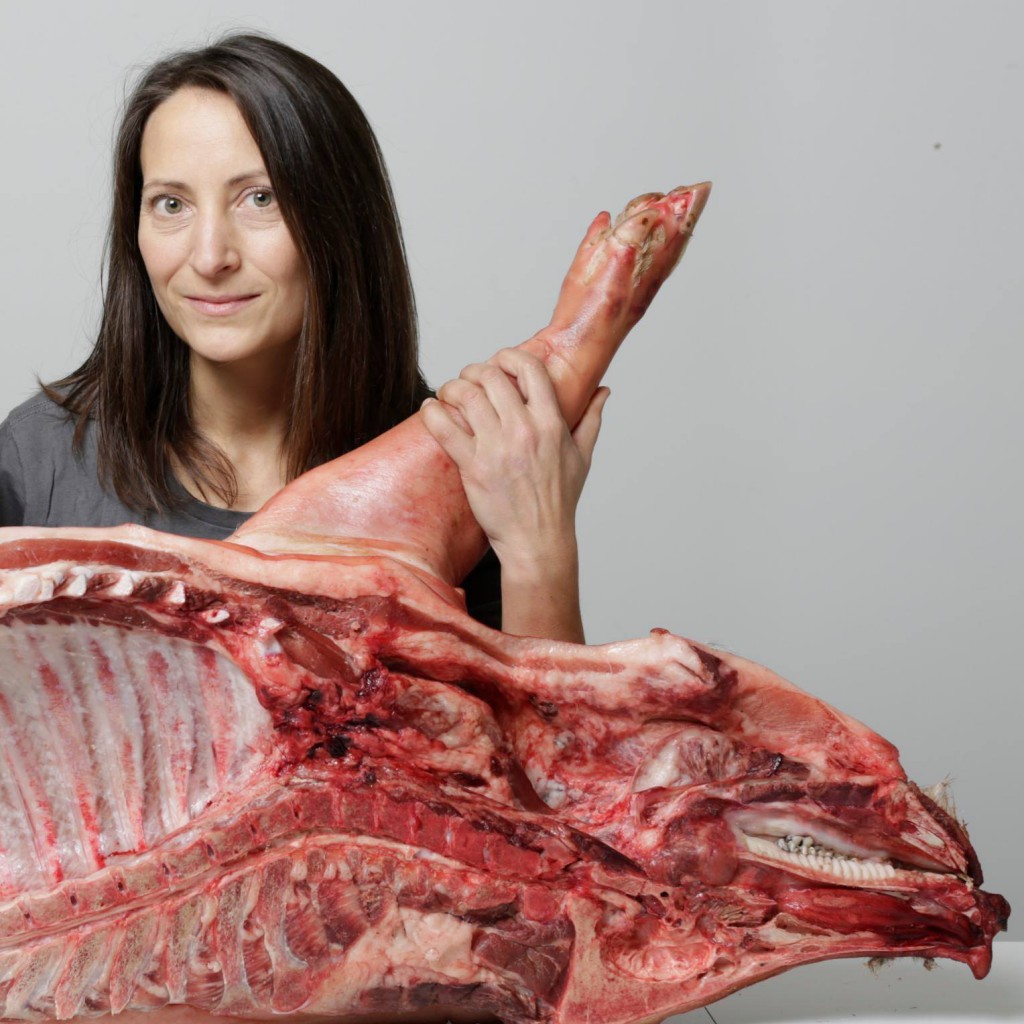Small-scale Producers Ready for Change

Small-scale animal agriculture is looking treacherous for those of us who dedicate our livelihoods to it. A myriad of challenges and concerns are growing within our community of small farmers about the feasibility of providing well-raised meat animals to a growing client base on a small scale.
As we battle within the current system and framework, many of us are fearful that our ability to produce meat will be thwarted by unreasonable expectations at municipal and provincial levels. The main obstacle? Slaughter.
Poultry and fowl are already ruled out for many of us as larger processors have cut back on, or eliminated, custom kill. And this sort of “fowl” play is not exclusive to poultry.
“There is only one federally inspected facility for hogs and they only process their own animals. This means that no one else can sell pork outside of BC,” says Julia Smith of Blue Sky Ranch in Merritt. “I feel it is unreasonable to expect small-scale producers to operate within a framework that was set up for industrial production. We can still produce meat safely in a way that accommodates the unique needs of small-scale producers. They are regulating and pricing us, and the facilities we need, right out of business.”
When your livelihood is threatened, people will respond, and that is true of the small producers in BC. We are starting to communicate and organize. The discourse shows common themes across BC, applicable to all animal slaughter: pigs, chickens, turkeys, cows—all of the producers are exasperated. It is becoming more restrictive for us to operate in an industry that doesn’t consider, or dare I say, even understand the needs of a small farmer. It’s questionable if it even recognizes the value we bring to the industry. We are the face-to-face interaction that an emerging new market demands. We are the self-marketers that are the face of the industry, the source of information and transparency for consumers. When there is scandal or incident within the industry, such as the leaked video of chicken abuse at a Lilydale plant in 2017, it was us that people came to for answers and it was largely us that were quoted in the media.

The first issue is the severe lack of slaughter facilities; many of us have to travel great distances to get to an abattoir. This presents a welfare issue as well as a financial one. And that is after we have had to wait significant amounts of time for a slaughter date. If you’re a small producer and you’re hoping to get a kill and butchering date during hunting season, you can forget about it. We are shoved even further down the list of priorities during fall.
“Last year our closest processor was booked from June to January—how can a farmer can do year-round business with six plus months of no slaughter?” asks Helen Cabot of Cabot Natural Meats.
“An inconsistent quality of work at the few government-inspected facilities we have access to makes it very hard to run a business selling our product,” says Steve Meggait, owner of Fresh Valley Farms—a feeling backed up by others that report a poor standard of work and hygiene in a few of the available processing plants.
Small producers pride themselves on raising quality product, so to have an unreasonably high number of B grade birds because the plucker has frequently damaged or even torn off wings or legs is detrimental to our business practices, our reputation, and our bottom line.
Small scale does not mean unprofessional. Personally, I have written business plans and financial forecasting for each year of operation and have detailed breakdowns for each project on the farm. It’s necessary, in my opinion, to run a tight ship in a volatile market. Having a processing plant double their rates without warning hit us hard. Profit margins are so tight that we cannot afford to have that dropped on us without notice. In which other industry would this be tolerated? Certainly not by our customers if we increased the price of a pre-ordered product without explanation.
We find our solutions to these challenges trivialized and we encounter further roadblocks from both municipal and provincial levels. For example, the regulation requirements to get a license to slaughter on farm are completely impractical and very few class E or D licenses are being issued for most of the province. Furthermore, the regulations around mobile facilities result in most of them not being able to function as intended due to overburdensome requirements at any location where they are processing.
Is it time for the industry to pony up and develop a working framework alongside the small producers, tighten up what is widely viewed as an insecure industry, and fund plants for small producers? It is at least time to govern contracts of responsibility that prohibit large processing plants from issuing notice to small producers or increasing costs without a fair and manageable notice period. While a new framework is a sizeable task, implementing contractual notice periods should not be hard and would begin to offer some reassurances.

The cost of losing small producers in BC is currently underestimated. There will be economic, environmental and welfare implications for every small farm lost. The BC government advocates for local food systems, so now is the time to take ownership of that and address some of these concerns. We would like and benefit from industry change but we cannot operate or encourage others to enter into farming enterprises without security. It’s time to talk, listen, support, and reassess the value and needs of small-scale producers in BC.
If you are ready to join the discussion as a producer, please visit the BC Small-Scale Meat Producers Facebook page.













